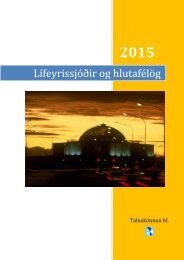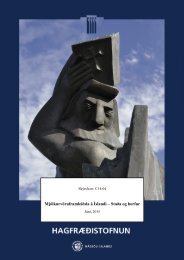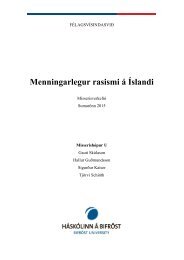- Page 1 and 2:
H U M A N R I G H T S W A T C H WOR
- Page 4:
Human Rights Watch defends the righ
- Page 8:
WORLD REPORT 2016 TABLE OF CONTENTS
- Page 12:
WORLD REPORT 2016 HUMAN RIGHTS WATC
- Page 16:
WORLD REPORT 2016 HUMAN RIGHTS WATC
- Page 20:
WORLD REPORT 2016 HUMAN RIGHTS WATC
- Page 24:
WORLD REPORT 2016 HUMAN RIGHTS WATC
- Page 28:
WORLD REPORT 2016 HUMAN RIGHTS WATC
- Page 32:
WORLD REPORT 2016 HUMAN RIGHTS WATC
- Page 36:
WORLD REPORT 2016 HUMAN RIGHTS WATC
- Page 40:
WORLD REPORT 2016 HUMAN RIGHTS WATC
- Page 44:
WORLD REPORT 2016 HUMAN RIGHTS WATC
- Page 48:
WORLD REPORT 2016 HUMAN RIGHTS WATC
- Page 52:
WORLD REPORT 2016 HUMAN RIGHTS WATC
- Page 56:
WORLD REPORT 2016 HUMAN RIGHTS WATC
- Page 60:
WORLD REPORT 2016 HUMAN RIGHTS WATC
- Page 64:
WORLD REPORT 2016 HUMAN RIGHTS WATC
- Page 68: WORLD REPORT 2016 HUMAN RIGHTS WATC
- Page 72: WORLD REPORT 2016 HUMAN RIGHTS WATC
- Page 76: WORLD REPORT 2016 HUMAN RIGHTS WATC
- Page 80: WORLD REPORT 2016 HUMAN RIGHTS WATC
- Page 84: WORLD REPORT 2016 HUMAN RIGHTS WATC
- Page 88: WORLD REPORT 2016 HUMAN RIGHTS WATC
- Page 92: WORLD REPORT 2016 HUMAN RIGHTS WATC
- Page 96: WORLD REPORT 2016 HUMAN RIGHTS WATC
- Page 100: WORLD REPORT 2016 HUMAN RIGHTS WATC
- Page 104: WORLD REPORT 2016 HUMAN RIGHTS WATC
- Page 108: WORLD REPORT 2016 HUMAN RIGHTS WATC
- Page 112: WORLD REPORT 2016 HUMAN RIGHTS WATC
- Page 116: WORLD REPORT 2016 HUMAN RIGHTS WATC
- Page 122: WORLD REPORT 2016 HUMAN RIGHTS WATC
- Page 126: WORLD REPORT 2016 HUMAN RIGHTS WATC
- Page 130: WORLD REPORT 2016 HUMAN RIGHTS WATC
- Page 134: WORLD REPORT 2016 HUMAN RIGHTS WATC
- Page 138: WORLD REPORT 2016 HUMAN RIGHTS WATC
- Page 142: WORLD REPORT 2016 HUMAN RIGHTS WATC
- Page 146: WORLD REPORT 2016 HUMAN RIGHTS WATC
- Page 150: WORLD REPORT 2016 HUMAN RIGHTS WATC
- Page 154: WORLD REPORT 2016 HUMAN RIGHTS WATC
- Page 158: WORLD REPORT 2016 HUMAN RIGHTS WATC
- Page 162: WORLD REPORT 2016 HUMAN RIGHTS WATC
- Page 166: WORLD REPORT 2016 HUMAN RIGHTS WATC
- Page 170:
WORLD REPORT 2016 HUMAN RIGHTS WATC
- Page 174:
WORLD REPORT 2016 HUMAN RIGHTS WATC
- Page 178:
WORLD REPORT 2016 HUMAN RIGHTS WATC
- Page 182:
WORLD REPORT 2016 HUMAN RIGHTS WATC
- Page 186:
WORLD REPORT 2016 HUMAN RIGHTS WATC
- Page 190:
WORLD REPORT 2016 HUMAN RIGHTS WATC
- Page 194:
WORLD REPORT 2016 HUMAN RIGHTS WATC
- Page 198:
WORLD REPORT 2016 HUMAN RIGHTS WATC
- Page 202:
WORLD REPORT 2016 HUMAN RIGHTS WATC
- Page 206:
WORLD REPORT 2016 HUMAN RIGHTS WATC
- Page 210:
WORLD REPORT 2016 HUMAN RIGHTS WATC
- Page 214:
WORLD REPORT 2016 HUMAN RIGHTS WATC
- Page 218:
WORLD REPORT 2016 HUMAN RIGHTS WATC
- Page 222:
WORLD REPORT 2016 HUMAN RIGHTS WATC
- Page 226:
WORLD REPORT 2016 HUMAN RIGHTS WATC
- Page 230:
WORLD REPORT 2016 HUMAN RIGHTS WATC
- Page 234:
WORLD REPORT 2016 HUMAN RIGHTS WATC
- Page 238:
WORLD REPORT 2016 HUMAN RIGHTS WATC
- Page 242:
WORLD REPORT 2016 HUMAN RIGHTS WATC
- Page 246:
WORLD REPORT 2016 HUMAN RIGHTS WATC
- Page 250:
WORLD REPORT 2016 HUMAN RIGHTS WATC
- Page 254:
WORLD REPORT 2016 HUMAN RIGHTS WATC
- Page 258:
WORLD REPORT 2016 HUMAN RIGHTS WATC
- Page 262:
WORLD REPORT 2016 HUMAN RIGHTS WATC
- Page 266:
WORLD REPORT 2016 HUMAN RIGHTS WATC
- Page 270:
WORLD REPORT 2016 HUMAN RIGHTS WATC
- Page 274:
WORLD REPORT 2016 HUMAN RIGHTS WATC
- Page 278:
WORLD REPORT 2016 HUMAN RIGHTS WATC
- Page 282:
WORLD REPORT 2016 HUMAN RIGHTS WATC
- Page 286:
WORLD REPORT 2016 HUMAN RIGHTS WATC
- Page 290:
WORLD REPORT 2016 HUMAN RIGHTS WATC
- Page 294:
WORLD REPORT 2016 HUMAN RIGHTS WATC
- Page 298:
WORLD REPORT 2016 HUMAN RIGHTS WATC
- Page 302:
WORLD REPORT 2016 HUMAN RIGHTS WATC
- Page 306:
WORLD REPORT 2016 HUMAN RIGHTS WATC
- Page 310:
WORLD REPORT 2016 HUMAN RIGHTS WATC
- Page 314:
WORLD REPORT 2016 HUMAN RIGHTS WATC
- Page 318:
WORLD REPORT 2016 HUMAN RIGHTS WATC
- Page 322:
WORLD REPORT 2016 HUMAN RIGHTS WATC
- Page 326:
WORLD REPORT 2016 HUMAN RIGHTS WATC
- Page 330:
WORLD REPORT 2016 HUMAN RIGHTS WATC
- Page 334:
WORLD REPORT 2016 HUMAN RIGHTS WATC
- Page 338:
WORLD REPORT 2016 HUMAN RIGHTS WATC
- Page 342:
WORLD REPORT 2016 HUMAN RIGHTS WATC
- Page 346:
WORLD REPORT 2016 HUMAN RIGHTS WATC
- Page 350:
WORLD REPORT 2016 HUMAN RIGHTS WATC
- Page 354:
WORLD REPORT 2016 HUMAN RIGHTS WATC
- Page 358:
WORLD REPORT 2016 HUMAN RIGHTS WATC
- Page 362:
WORLD REPORT 2016 HUMAN RIGHTS WATC
- Page 366:
WORLD REPORT 2016 HUMAN RIGHTS WATC
- Page 370:
WORLD REPORT 2016 HUMAN RIGHTS WATC
- Page 374:
WORLD REPORT 2016 HUMAN RIGHTS WATC
- Page 378:
WORLD REPORT 2016 HUMAN RIGHTS WATC
- Page 382:
WORLD REPORT 2016 HUMAN RIGHTS WATC
- Page 386:
WORLD REPORT 2016 HUMAN RIGHTS WATC
- Page 390:
WORLD REPORT 2016 HUMAN RIGHTS WATC
- Page 394:
WORLD REPORT 2016 HUMAN RIGHTS WATC
- Page 398:
WORLD REPORT 2016 HUMAN RIGHTS WATC
- Page 402:
WORLD REPORT 2016 HUMAN RIGHTS WATC
- Page 406:
WORLD REPORT 2016 HUMAN RIGHTS WATC
- Page 410:
WORLD REPORT 2016 HUMAN RIGHTS WATC
- Page 414:
WORLD REPORT 2016 HUMAN RIGHTS WATC
- Page 418:
WORLD REPORT 2016 HUMAN RIGHTS WATC
- Page 422:
WORLD REPORT 2016 HUMAN RIGHTS WATC
- Page 426:
WORLD REPORT 2016 HUMAN RIGHTS WATC
- Page 430:
WORLD REPORT 2016 HUMAN RIGHTS WATC
- Page 434:
WORLD REPORT 2016 HUMAN RIGHTS WATC
- Page 438:
WORLD REPORT 2016 HUMAN RIGHTS WATC
- Page 442:
WORLD REPORT 2016 HUMAN RIGHTS WATC
- Page 446:
WORLD REPORT 2016 HUMAN RIGHTS WATC
- Page 450:
WORLD REPORT 2016 HUMAN RIGHTS WATC
- Page 454:
WORLD REPORT 2016 HUMAN RIGHTS WATC
- Page 458:
WORLD REPORT 2016 HUMAN RIGHTS WATC
- Page 462:
WORLD REPORT 2016 HUMAN RIGHTS WATC
- Page 466:
WORLD REPORT 2016 HUMAN RIGHTS WATC
- Page 470:
WORLD REPORT 2016 HUMAN RIGHTS WATC
- Page 474:
WORLD REPORT 2016 HUMAN RIGHTS WATC
- Page 478:
WORLD REPORT 2016 HUMAN RIGHTS WATC
- Page 482:
WORLD REPORT 2016 HUMAN RIGHTS WATC
- Page 486:
WORLD REPORT 2016 HUMAN RIGHTS WATC
- Page 490:
WORLD REPORT 2016 HUMAN RIGHTS WATC
- Page 494:
WORLD REPORT 2016 HUMAN RIGHTS WATC
- Page 498:
WORLD REPORT 2016 HUMAN RIGHTS WATC
- Page 502:
WORLD REPORT 2016 HUMAN RIGHTS WATC
- Page 506:
WORLD REPORT 2016 HUMAN RIGHTS WATC
- Page 510:
WORLD REPORT 2016 HUMAN RIGHTS WATC
- Page 514:
WORLD REPORT 2016 HUMAN RIGHTS WATC
- Page 518:
WORLD REPORT 2016 HUMAN RIGHTS WATC
- Page 522:
WORLD REPORT 2016 HUMAN RIGHTS WATC
- Page 526:
WORLD REPORT 2016 HUMAN RIGHTS WATC
- Page 530:
WORLD REPORT 2016 HUMAN RIGHTS WATC
- Page 534:
WORLD REPORT 2016 HUMAN RIGHTS WATC
- Page 538:
WORLD REPORT 2016 HUMAN RIGHTS WATC
- Page 542:
WORLD REPORT 2016 HUMAN RIGHTS WATC
- Page 546:
WORLD REPORT 2016 HUMAN RIGHTS WATC
- Page 550:
WORLD REPORT 2016 HUMAN RIGHTS WATC
- Page 554:
WORLD REPORT 2016 HUMAN RIGHTS WATC
- Page 558:
WORLD REPORT 2016 HUMAN RIGHTS WATC
- Page 562:
WORLD REPORT 2016 HUMAN RIGHTS WATC
- Page 566:
WORLD REPORT 2016 HUMAN RIGHTS WATC
- Page 570:
WORLD REPORT 2016 HUMAN RIGHTS WATC
- Page 574:
WORLD REPORT 2016 HUMAN RIGHTS WATC
- Page 578:
WORLD REPORT 2016 HUMAN RIGHTS WATC
- Page 582:
WORLD REPORT 2016 HUMAN RIGHTS WATC
- Page 586:
WORLD REPORT 2016 HUMAN RIGHTS WATC
- Page 590:
WORLD REPORT 2016 HUMAN RIGHTS WATC
- Page 594:
WORLD REPORT 2016 HUMAN RIGHTS WATC
- Page 598:
WORLD REPORT 2016 HUMAN RIGHTS WATC
- Page 602:
WORLD REPORT 2016 HUMAN RIGHTS WATC
- Page 606:
WORLD REPORT 2016 HUMAN RIGHTS WATC
- Page 610:
WORLD REPORT 2016 HUMAN RIGHTS WATC
- Page 614:
WORLD REPORT 2016 HUMAN RIGHTS WATC
- Page 618:
WORLD REPORT 2016 HUMAN RIGHTS WATC
- Page 622:
WORLD REPORT 2016 HUMAN RIGHTS WATC
- Page 626:
WORLD REPORT 2016 HUMAN RIGHTS WATC
- Page 630:
WORLD REPORT 2016 HUMAN RIGHTS WATC
- Page 634:
WORLD REPORT 2016 HUMAN RIGHTS WATC
- Page 638:
WORLD REPORT 2016 HUMAN RIGHTS WATC
- Page 642:
WORLD REPORT 2016 HUMAN RIGHTS WATC
- Page 646:
WORLD REPORT 2016 HUMAN RIGHTS WATC
- Page 650:
WORLD REPORT 2016 HUMAN RIGHTS WATC
- Page 654:
WORLD REPORT 2016 HUMAN RIGHTS WATC
- Page 658:
WORLD REPORT 2016 HUMAN RIGHTS WATC
- Page 662:
WORLD REPORT 2016 HUMAN RIGHTS WATC
- Page 666:
WORLD REPORT 2016 HUMAN RIGHTS WATC
- Page 670:
WORLD REPORT 2016 HUMAN RIGHTS WATC
- Page 674:
H U M A N R I G H T S W A T C H WOR










